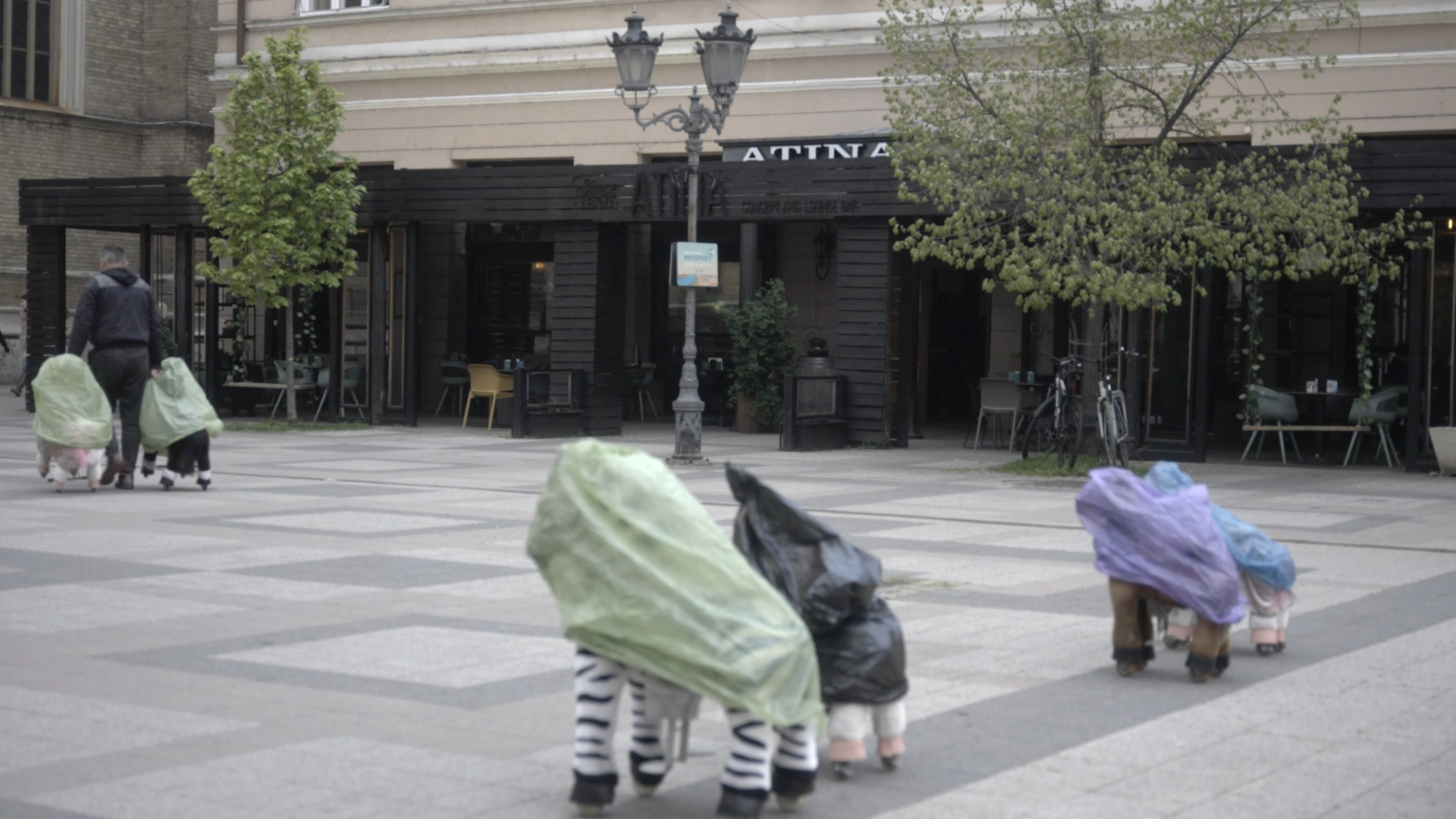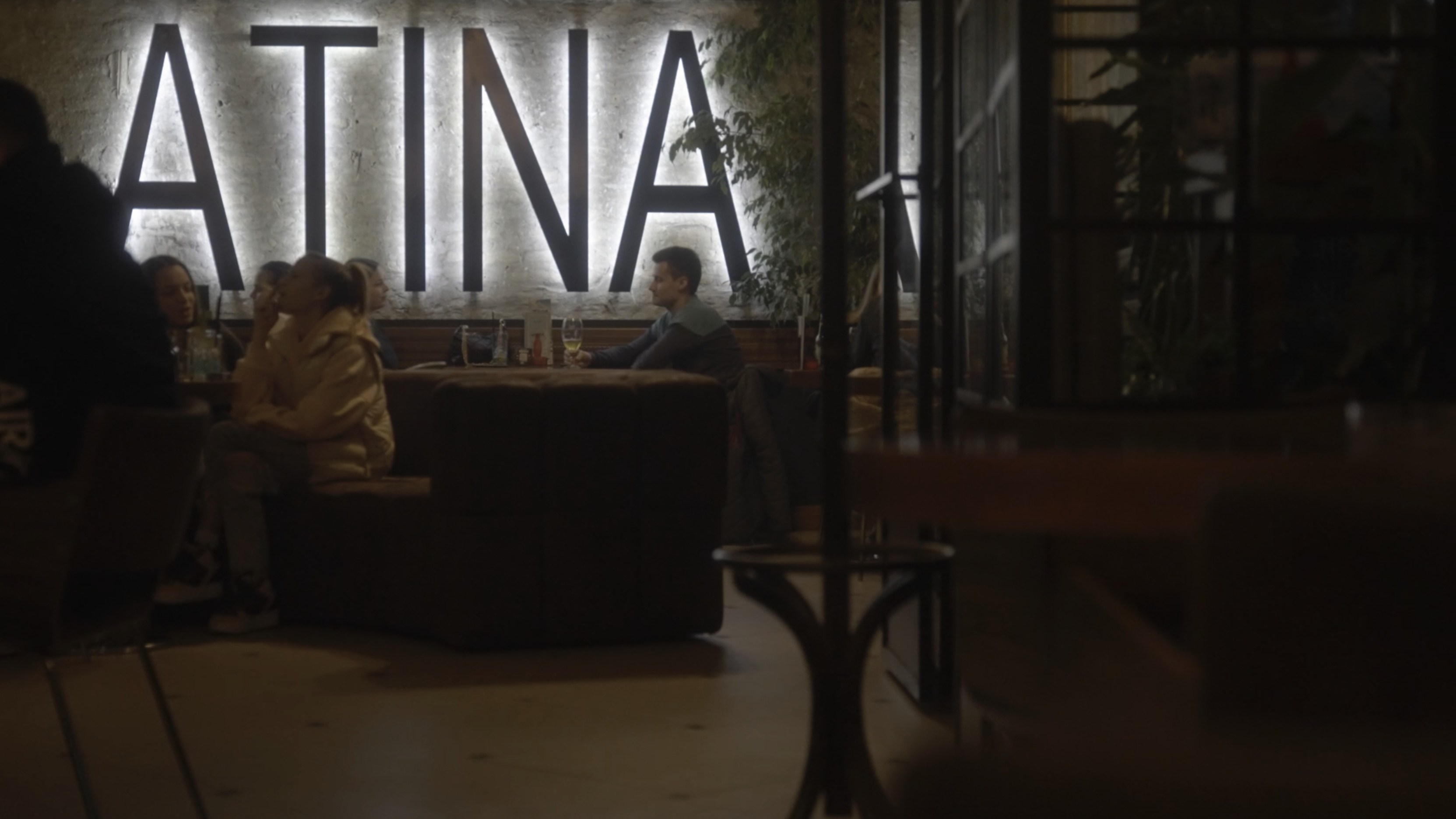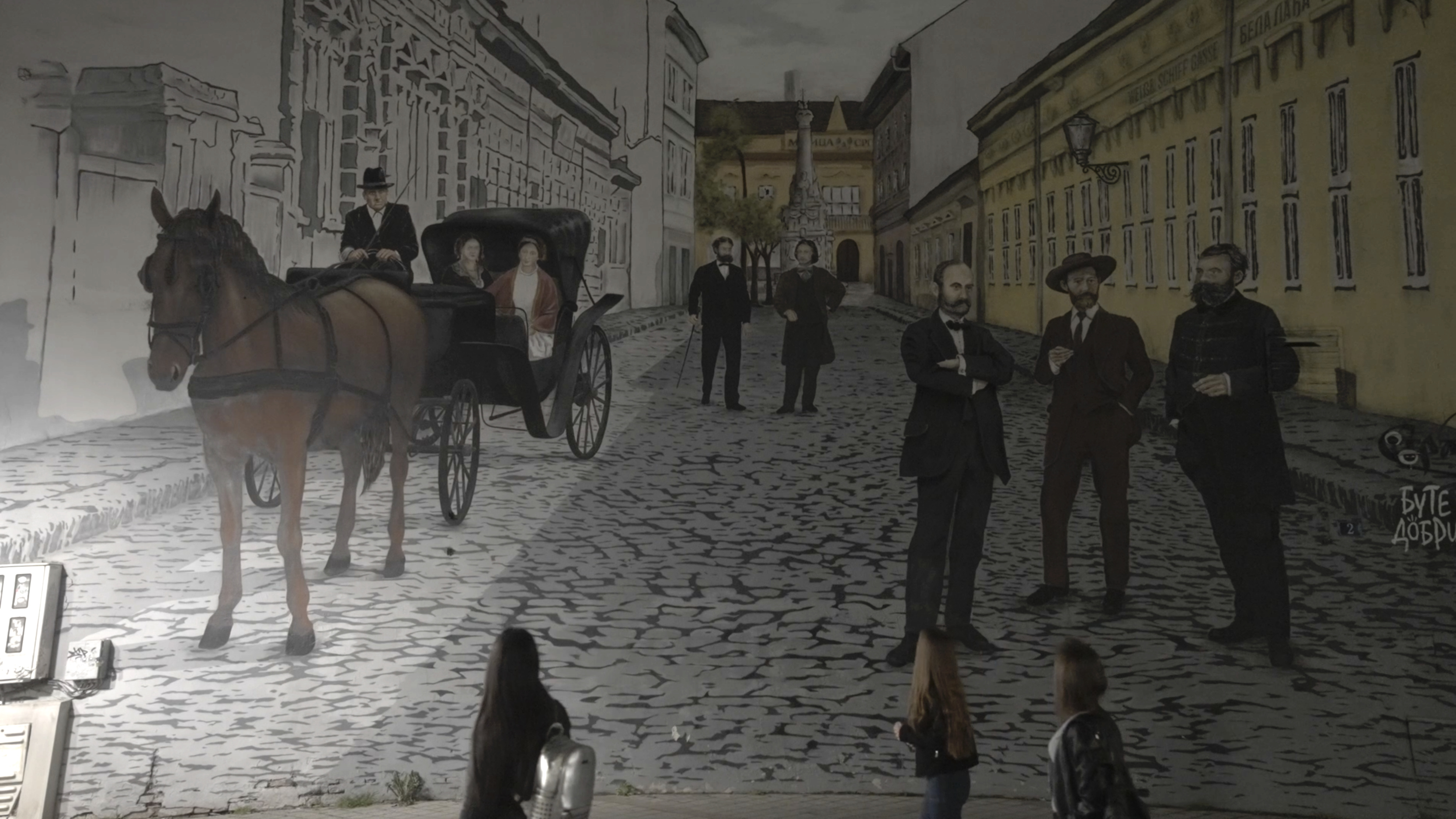NOVI SADVideo: HD, colour, stereo, 10’, 2022
Video: HD, colour, stereo, 10’, 2022
Text: László Végel
Concept / Directing / Camera: Adnan Softić
Video editing / Sound: Nina Softić
Sound mix: Daniel Dominguez Teurel
Comissioned by ifa (Institut für Auslandsbeziehungen)






The very popular coffee house "Atina" in the centre of Novi Sad has had to change its name several times in its history - always at the whim of the current ruling ideology. The original name "Dornštedter" - named after its founder - was changed after the Second World War and the victory against the Axis powers, first to "Moscow", then after Yugoslavia's withdrawal from the Eastern bloc to "Zagreb", and finally after the disintegration of Yugoslavia to "Athens". Such name overwritings were often practised in Novi Sad, which is why many streets and institutions had to be renamed again and again.
In the 19th century, the once very multi-ethnic and polyphonic city officially had 4 names in four different languages - in addition to Novi Sad, the names Újvidék, Neusatz and Neoplanta were also used - in order to reflect the city's multilingualism. Today, after the last Balkan war and facing a new demographic background, a new synonym for Novi Sad is preferred - the city now promotes itself as the "Serbian Athens" - because of the seat of "Matica Srpska", Serbia's most important cultural institution.
In his opus, László Végel, a writer and Hungarian living in Novi Sad, observes those changes in the disappearance of the polyphony of this central european city. In his work, he returns repeatedly to the "Dornštedter" or "Atina" coffee house, whose transformation can be understood as representative of Novi Sad as well as the Vojvodina region.